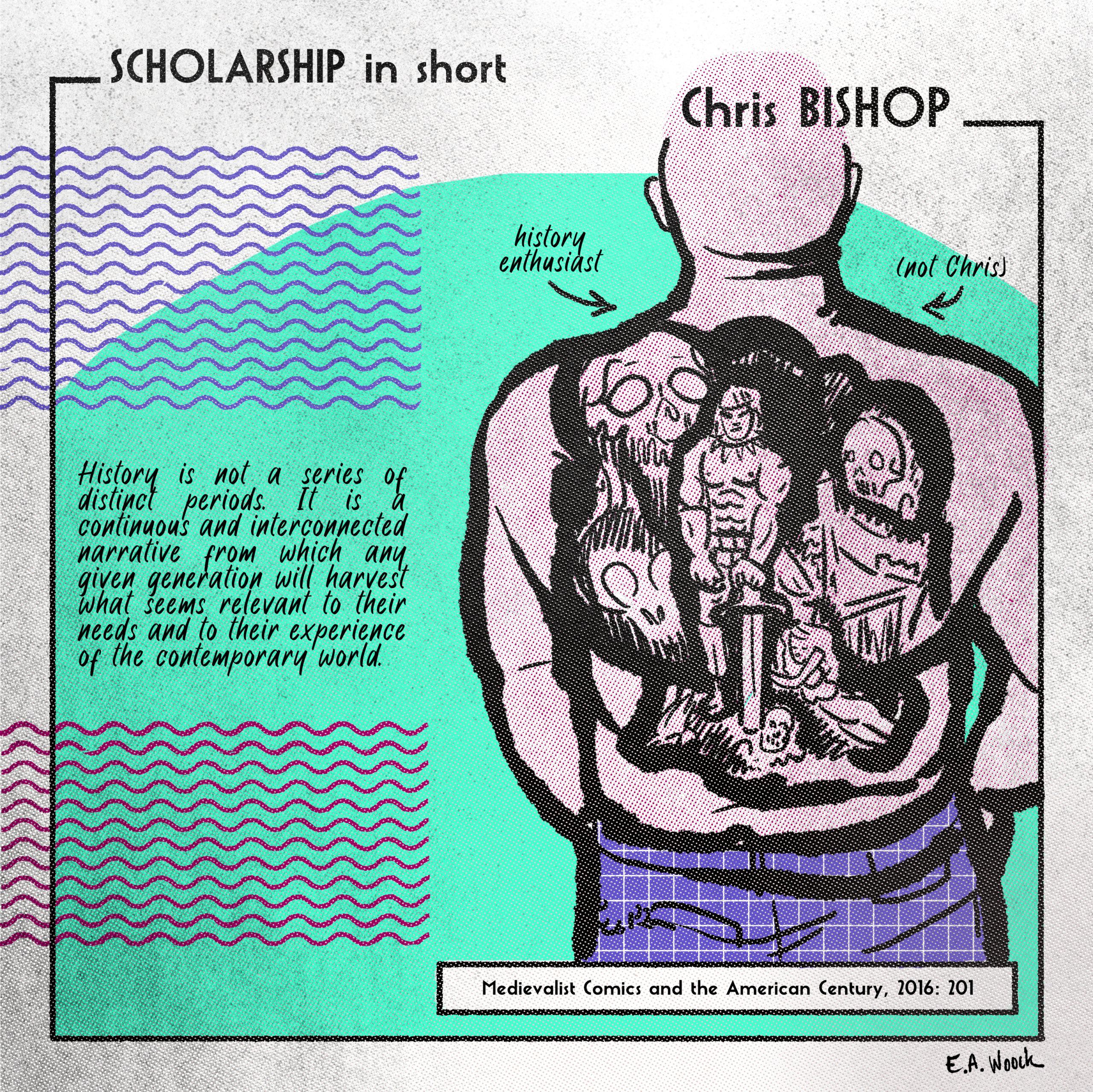
About the scholar
Dr. Chris Bishop is a honorary lecturer at the Australian National University. He has published widely on the history of late antiquity and the early Middle Ages, as well as on comic book studies. In 2012 Bishop was awarded a Kluge Fellowship at the Library of Congress for his research, which led to the publication of the book.
About the book
Chris Bishop, Medievalist Comics and the American Century, University Press of Mississippi, 2016.
Official blurb: From its genesis in the 1930s to the present, Bishop surveys the medievalist comic, its stories, characters, settings, and themes drawn from the European Middle Ages. Hal Foster’s Prince Valiant emerged from an America at odds with monarchy, but still in love with King Arthur. Green Arrow remains the continuation of a long fascination with Robin Hood that has become as central to the American identity as it was to the British. The Mighty Thor reflects the legacy of Germanic migration into the United States. The rugged individualism of Conan the Barbarian owes more to the western cowboy than it does to the continental knight-errant. In the narrative of Red Sonja, we can trace a parallel history of feminism. Bishop regards these comics as not merely happenchance, but each success (Prince Valiant and The Mighty Thor) or failure (Beowulf: Dragon Slayer) as a result and an indicator of certain American preoccupations amid a larger cultural context. Intrinsically modernist paragons of pop-culture ephemera, American comics have ironically continued to engage with the European Middle Ages. Bishop illuminates some of the ways in which we use an imagined past to navigate the present and plots some possible futures as we valiantly shape a new century.
The main takeaway is that the medieval is not past, it’s not even medieval, but rather the use of medievalist elements sheds light on contemporary issues.
